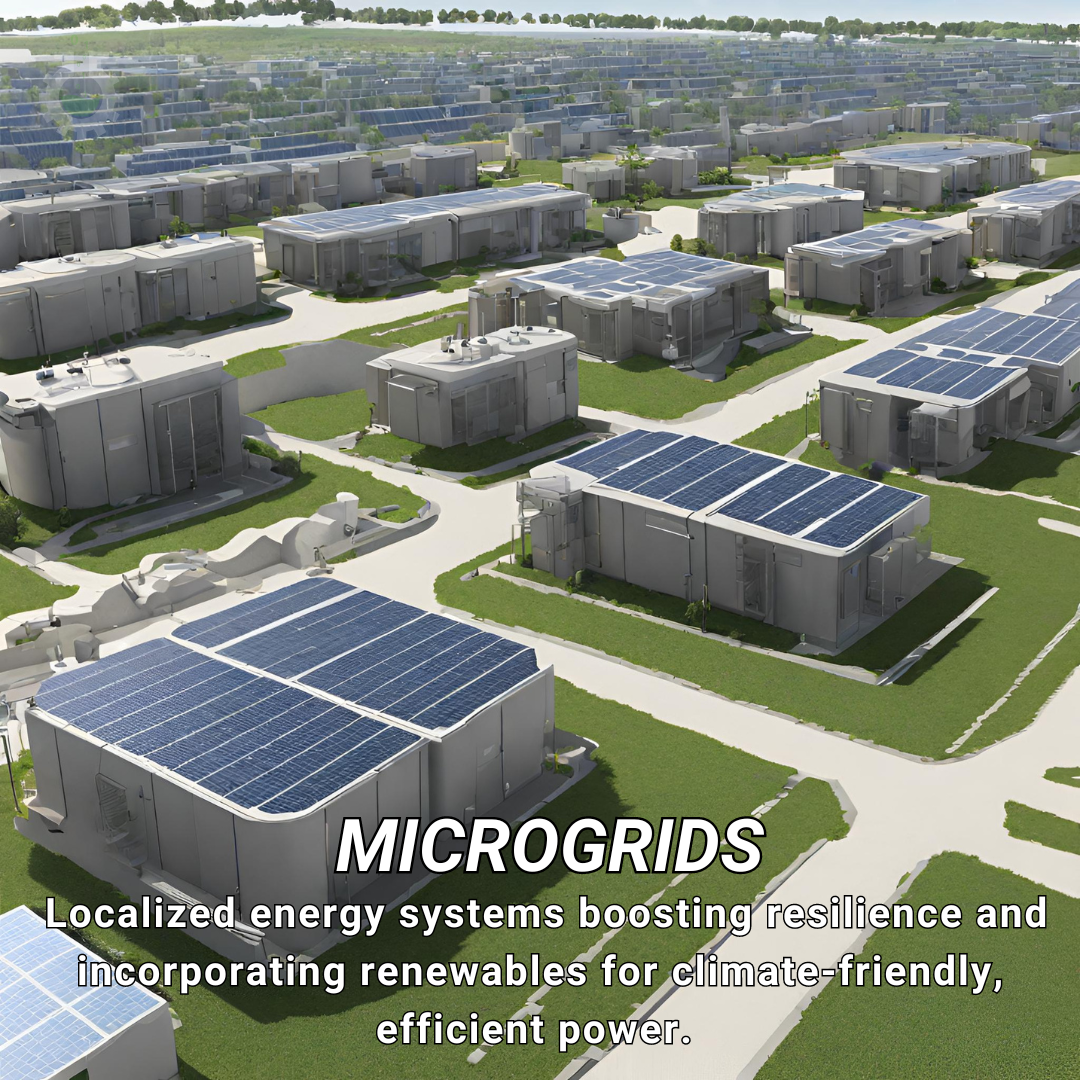
Today’s Climate Change Poster Collection highlights Microgrids, emerged as a game-changer in the field of renewable energy, proving themselves to be flexible and efficient. These networks are capable of operating both dependently and independently from larger utility grids, providing a nimble and adaptable energy solution. Their flexibility is combined with an ability to harness renewable energy sources such as solar, wind, and hydrogen fuel cells, making them a greener alternative to traditional power grids.
One of the most impressive advantages of microgrid technology is its cost efficiency. Microgrids can store surplus electricity generated from renewable sources for use during periods of high demand. This ability to store and distribute power as needed not only reduces costs but also increases the efficiency of the system. Moreover, microgrids reduce utility transmission losses, making them not only cost-effective but also more efficient in comparison to larger grids.
The benefits of microgrids extend beyond just cost and efficiency. They offer increased reliability, flexibility, and significantly reduced emissions due to the use of renewable energy. These benefits make them a viable option for communities and industries looking to reduce their carbon footprint and save on energy costs.
During power outages or natural disasters, microgrids demonstrate their true value by providing essential backup power. They have the unique ability to disconnect from the central grid and operate independently, ensuring power reliability during unexpected events. This is particularly important in areas prone to severe weather conditions or those with unreliable power infrastructure.
The operations of a microgrid are managed by a sophisticated controller. This controller effectively manages the energy supply by tracking real-time changes in power prices on the central grid. This smart energy management ensures optimal use of energy resources, further enhancing the efficiency and cost-effectiveness of microgrids.
Microgrids represent a flexible, efficient, and green alternative to traditional power grids. They not only harness renewable energy to reduce emissions but also provide reliable power during outages and peak demand periods. With their advanced control systems, they offer an effective solution for managing energy supply in real-time, making them an attractive choice for future power infrastructures.
Discover an inspiring collection of climate change poster.






